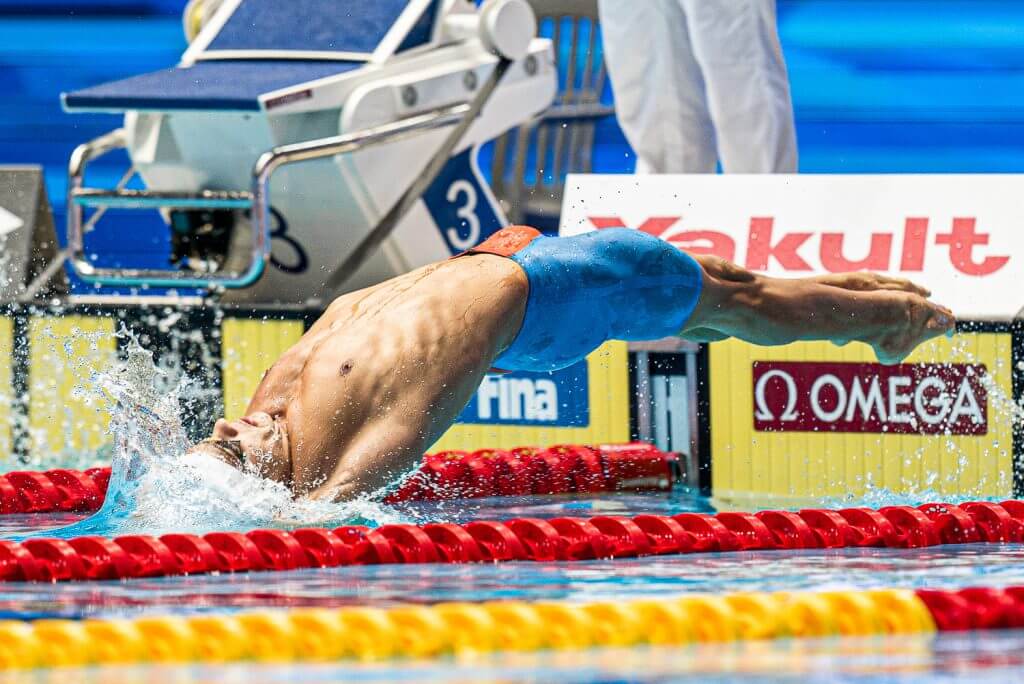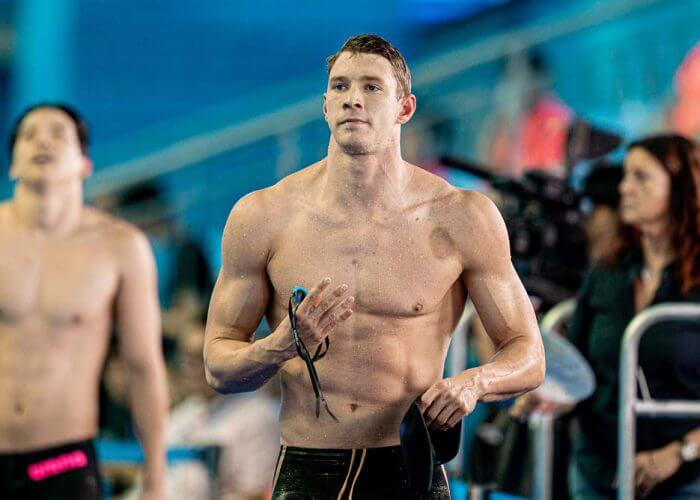Tokyo Vision: Evgeny Rylov And Ryan Murphy Set For Clash Of The Titans In The 200 Back

Tokyo Vision: Evgeny Rylov And Ryan Murphy Set For Clash Of The Titans In The 200 Back
Had the COVID-19 pandemic not shaken the world, the 2020 Olympic Games in Tokyo would be unfolding right now, titles and podium finishes earned by the finest athletes from around the world. Instead, we are in a competition lull and hopeful that the Games will be held next summer, with COVID-19 neutralized.
As we reach the nine days over which the swimming competition of a delayed Olympiad would have taken place, Swimming World is taking a glimpse at what might have unfolded this summer, had the Olympics not been postponed. Following the official schedule, we offer our virtual fields of eight finalists for each event and take a brief look at how the racing might have panned out until a few strokes away from decision and a result that will not be known until July/August 2021.
League of Olympic Legends: Roland Matthes Tops 200 Backstroke Podium With Peirsol and Naber
Event: Men’s 200m Backstroke
World Record: Aaron Piersol (2009) – 1:51.92
Historical Note #1: The men’s 200 backstroke first featured in the Games in Paris 1900 where Ernst Hoppenberg of Germany won the inaugural title in 2:47.00 ahead of Karl Ruberl (Austria) and Johannes Drost (Netherlands). It was not contested again until Tokyo 1964 when Jed Graef led a USA clean sweep of the podium.
Historical Note #2: Roland Matthes (GDR) is the only man to have won two Olympic gold medals in the 200 back. His first title came in Mexico 1968 – where he also won the 100 – a feat he repeated four years later in Munich. Following his swansong in Montreal four years later, the German retired with eight medals of which four were gold. Matthes was unbeaten over 21 years and is known as the GOAT of the stroke and the “Rolls-Royce of swimming.”
Virtual Vision
The Finalists (Listed Alphabetically)
- Luke Greenbank – Great Britain
- Ryosuke Irie – Japan
- Radoslaw Kawecki – Poland
- Li Guangyuan – China
- Mitch Larkin – Australia
- Ryan Murphy – United States
- Jacob Pebley – United States
- Evgeny Rylov – Russia
The Race

Ryan Murphy: Photo Courtesy: Becca Wyant
Evgeny Rylov came into the race in the pole position, four years after winning bronze at Rio 2016. Since then the Russian had won the 2017 and 2019 world titles sandwiching European gold in 2018 where he set the continental record. Ryan Murphy and Mitch Larkin had finished ahead of Rylov that day and the trio were reunited in Tokyo with the Australian plumping for the backstroke rather than the 200 IM in the same session.
Rylov and Murphy both went out quickly down the first 50, the former turning fractionally first with the American closely followed by home hope Ryosuke Irie, buoyed by a raucous crowd.
There was little to choose between the remaining swimmers with 2019 world bronze medalist Luke Greenbank toward the back of the field.
Rylov continued to lead at the halfway stage as he and Murphy threatened to break away with Irie and Larkin, the men appearing most likely to bridge the gap. Come the 150 mark and still Rylov and Murphy were leading the way but – as in Gwangju in 2019 – Greenbank had moved through the field and a fine underwater at the last turn saw the Briton emerge alongside the leaders of the chasing pack.
Irie, Larkin, Greenbank and Kawecki were going stroke for stroke – a sub 30-second final 50 imperative if they were to make any headway – as the leading pair seemingly fought their own duel down that last length.
But was it definitely going to be gold and silver for Rylov and Murphy? Who was going to stop the clock first out of the challengers? Who would reach the podium and who would miss out?



